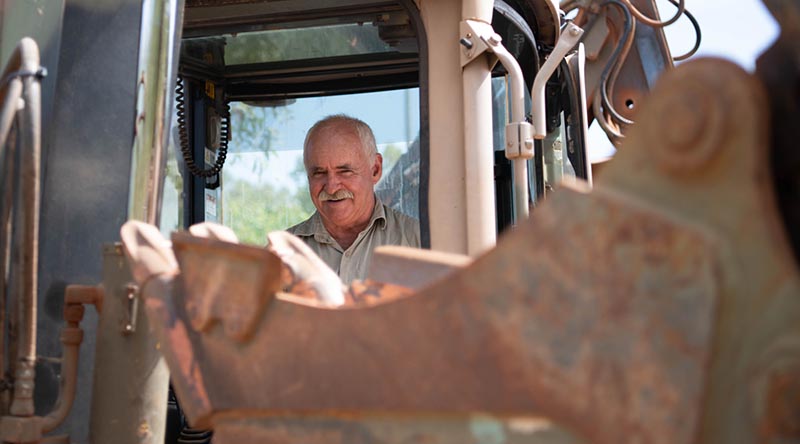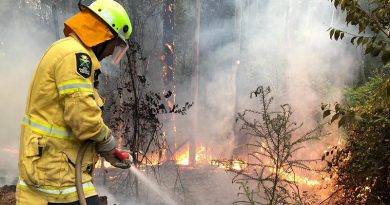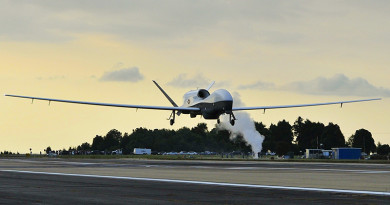Army kicks off 25th year on AACAP

This year the Australian Army celebrates its 25th year of providing support to remote First Nations communities through the Army Aboriginal Community Assistance Programme (AACAP).
CAPTION: Plant foreman Corporal Greg McKenzie from 6th Engineer Support Regiment brings a backhoe onto site during Army Aboriginal Community Assistance Program 2022 at Gapuwiyak in the Northern Territory. Photo by Corporal Petersen.
AACAP is a joint initiative between Army and the National Indigenous Australians Agency (NIAA) which sees Army personnel deployed to a different remote community each year to work on projects that improve health, living and economic conditions specific to that community.
This year, AACAP will be hosted in Gapuwiyak and Baniyala in East Arnhem Land. Army personnel will live and work alongside the community for a five month period to deliver upgrades to infrastructure and services and provide health programmes, vocational training and community-based engagement activities.
Among the community-requested projects, the Gapuwiyak community will benefit from a new culture and arts centre co-funded by the Northern Territory Government.
Yesterday, the AACAP contingent of approximately 110 personnel were given a Welcome to Country ceremony by the Gapuwiyak community.
Chief of Army, Lieutenant General Rick Burr AO, DSC, MVO, said Gapuwiyak and Baniyala will be the 48th and 49th communities to benefit from the programme since it commenced in Bulla, Northern Territory, in 1997.
“With the exception of 2020 when the programme was postponed due to the COVID-19 pandemic, AACAP has been conducted annually since 1997,” Lieutenant General Burr said.
“AACAP capitalises on Army’s ability to deliver a range of services that would not normally be available in a single project.”
Over the past 25 years, AACAP projects have delivered a mix of housing, road construction/upgrades, sewerage treatment plants, airfield construction or upgrades, health clinics, telecommunications infrastructure, school upgrades, potable water supply infrastructure and housing subdivisions.
“Army is proud to have worked with almost 50 First Nations communities over the past 25 years to deliver health and infrastructure improvements through AACAP,” Lieutenant General Burr said.
“I thank all of those communities for welcoming our people to the kinship, culture and connectedness of their community and sharing their customs and traditions with Army.”
NIAA chief executive officer Jody Broun said AACAP was a perfect example of how collaboration across Government could create meaningful change for First Nations peoples and communities while tackling the bigger picture.
“AACAP is a tremendous program that leaves a tangible impact on remote communities well beyond the team’s deployment and contributes to key economic targets identified in the Government’s Closing the Gap agenda,” said Ms. Broun.
“Over the past 25 years this program has facilitated a genuine partnership with remote Australia, transferring specialist skills into community-driven projects NS creating meaningful jobs and training opportunities for locals that last.
“The Army’s commitment to delivering AACAP with NIAA is a real-life demonstration of the success we see when Closing the Gap is seen as a whole-of-Government priority.”
.
.

.
.





